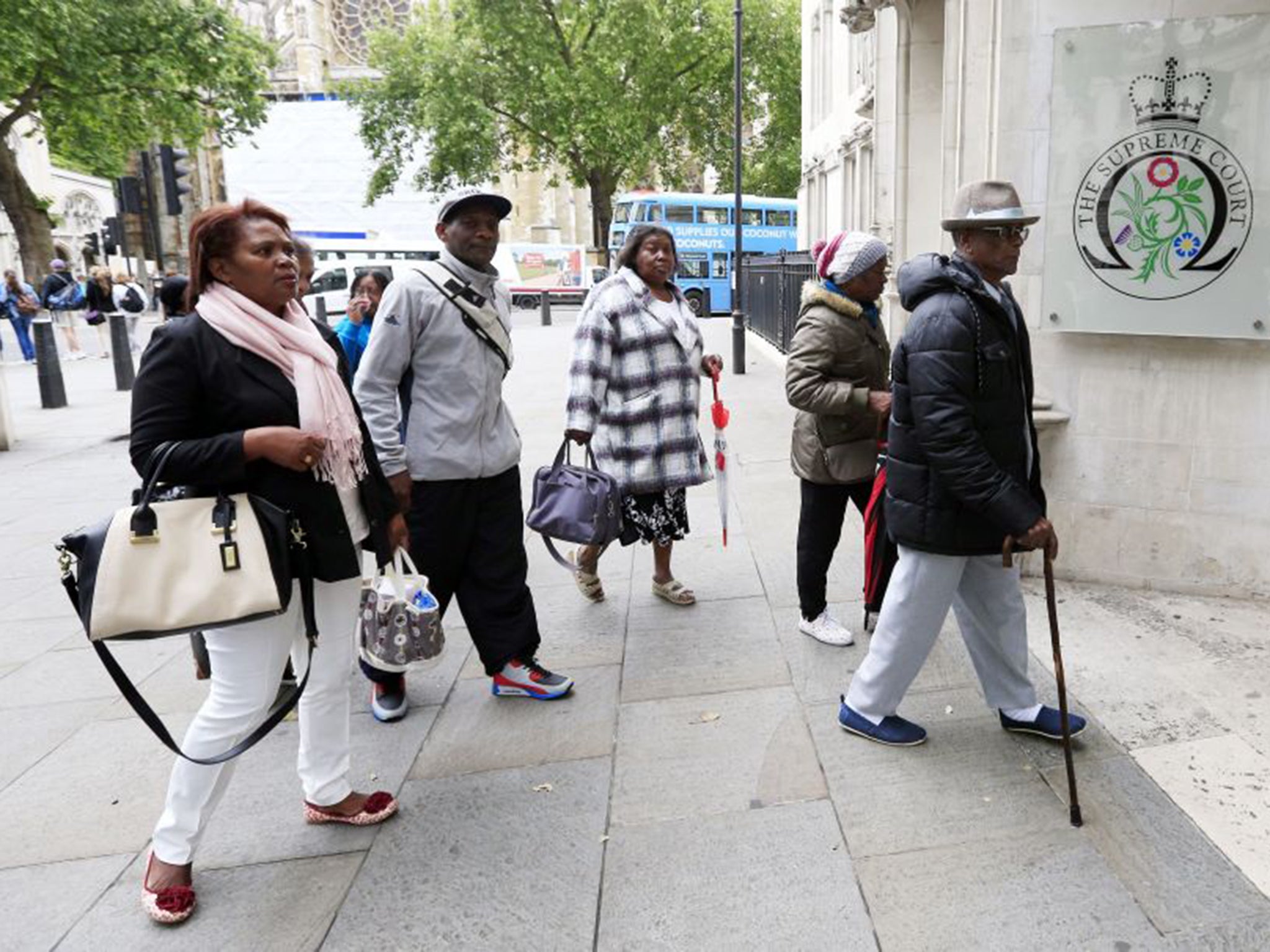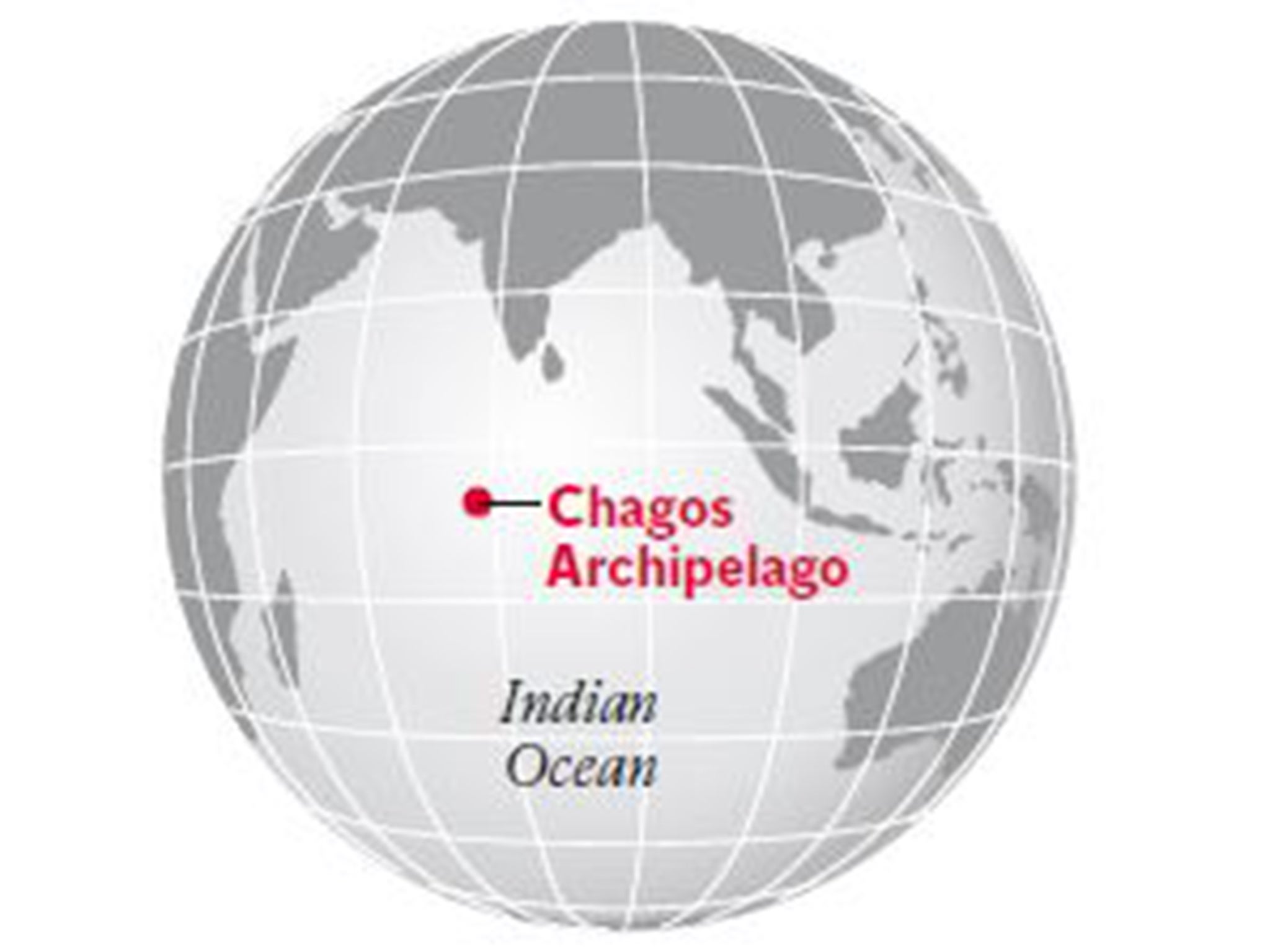Ruling that dashed hopes of Chagos Islanders to return to homeland should be quashed, Supreme Court hears
The islanders were forcibly removed from their lands 40 years ago to make way for an American air base

Your support helps us to tell the story
From reproductive rights to climate change to Big Tech, The Independent is on the ground when the story is developing. Whether it's investigating the financials of Elon Musk's pro-Trump PAC or producing our latest documentary, 'The A Word', which shines a light on the American women fighting for reproductive rights, we know how important it is to parse out the facts from the messaging.
At such a critical moment in US history, we need reporters on the ground. Your donation allows us to keep sending journalists to speak to both sides of the story.
The Independent is trusted by Americans across the entire political spectrum. And unlike many other quality news outlets, we choose not to lock Americans out of our reporting and analysis with paywalls. We believe quality journalism should be available to everyone, paid for by those who can afford it.
Your support makes all the difference.A ruling which dashed the hopes of former residents of the Chagos Islands to return to the British colony should be quashed after the Government failed for nearly a decade to disclose crucial documents, Britain’s highest court has heard.
A group of islanders who were forced from the Indian Ocean archipelago 40 years ago to make way for an American air base went to the Supreme Court to argue that the Foreign Office wrongly sat on a draft of a 2002 report which discussed the feasibility of a re-settlement of the territory.
The final version of the report formed part of the basis for a ruling six years ago by the House of Lords that a return to the islands would be too precarious and too expensive. The ruling overturned previous court findings that the Chagossians should be allowed to re-settle the remote coral islands, which host a large US base on Diego Garcia.
The islanders and their lawyers, including Amal Clooney, made their way to the Supreme Court after finally obtaining the draft report and arguing that it showed the final version had been significantly changed to back the Government’s claims that a return was impossible.
The islanders allege that the draft document - known as the Phase 2B report - and other papers showed that the report was heavily criticised by the Foreign Office’s own scientific advisor and was significantly changed in its final version after consultation with diplomats.
Edward Fitzgerald QC, for the Chagossians, said the failure to disclose the draft had had a decisive impact on the 2008 House of Lords ruling.

Mr Fitzgerald said: “We say that the non-disclosure is significant and material and that it affords grounds... to set aside judgment.”
He added: “There has been a significant injustice in the earlier proceedings.”
The case, which is being brought in the name of the prominent Chagossian campaigner Olivier Bancoult, represents the latest chapter in the long saga of the islanders’ battle to have their expulsion in the early 1970s declared illegal and ultimately be allowed to return to the coral atoll’s outer islands.
The poet Benjamin Zephaniah, who is patron of the Chagos Refugee Group, said: “I’m optimistic the court will see sense and recognise previous Government attempts to prevent Chagossian return have been totally illegitimate and undemocratic.”
Lawyers for the Government insisted that there had been no failure to disclose the documents. Stephen Kovats QC told the court that there had been “no material change” between the preliminary and final versions of the report.
Judgment was reserved to a later date.
Join our commenting forum
Join thought-provoking conversations, follow other Independent readers and see their replies
Comments